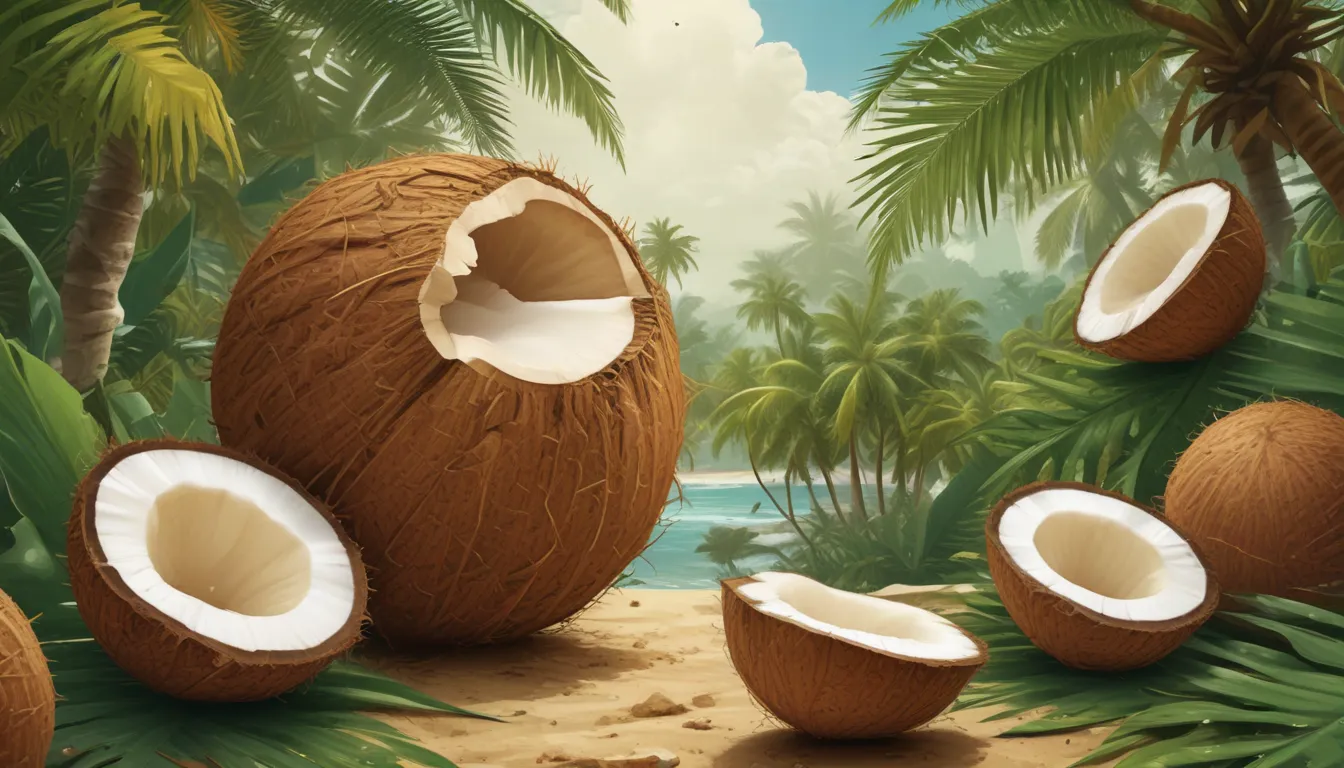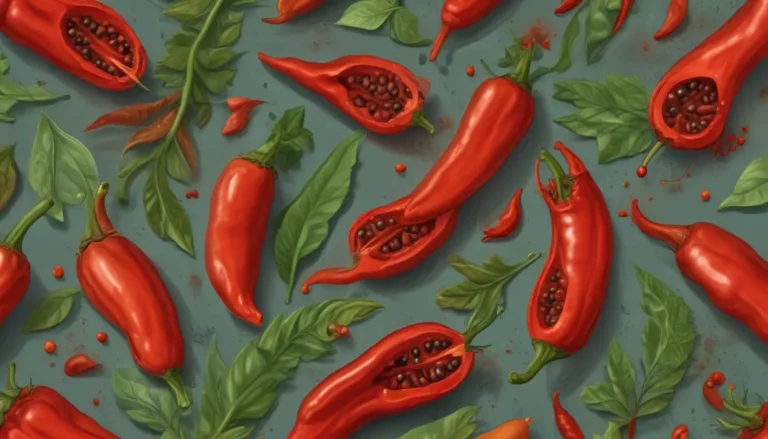The pictures in our articles might not always show exactly what the text is talking about. We use these images to make the article more interesting and eye-catching. They are there to add to the text, but not to replace it or show every detail.
Coconuts are not just a tasty treat but a versatile fruit packed with numerous health benefits. Their exotic flavor and wide array of uses have made them a staple in many tropical cultures for generations. Whether you're enjoying coconut water on a hot day, cooking with coconut oil, or savoring coconut milk in your favorite dishes, there's no denying the appeal of these tropical gems.
Join us as we uncover 10 fun facts about coconuts that will amaze you and deepen your appreciation for this remarkable fruit. From their impressive versatility as a culinary ingredient to their surprising health benefits, coconuts truly live up to their reputation as the "fruit of life." So, buckle up and embark on this exciting journey into the intriguing world of coconuts!
Unveiling the Mysteries of Coconuts:
- Coconuts are not actually nuts but fruits known as drupes. They have a hard outer shell and a delicious fleshy interior, making them a unique fruit in the botanical world.
- Coconut water is nature's sports drink, low in calories, fat-free, and rich in electrolytes, making it a perfect choice for rehydration after physical activity.
The Truth Behind Coconuts:
Contrary to popular belief, coconuts are not nuts. They are classified as drupes, a type of fruit with a hard outer shell and a juicy, edible interior. So, the next time you crack open a coconut, remember that you're indulging in a fruit, not a nut!
The Amazing Floating Coconuts:
Thanks to their unique composition, coconuts have the remarkable ability to float in water. The fibrous husk surrounding the coconut is buoyant, allowing them to be transported across long distances by ocean currents. No wonder why coconuts are often associated with tropical beaches!
Nutrient Powerhouse Coconuts:
Not only are coconuts delicious, but they are also incredibly nutritious. Packed with fiber, vitamins C, E, and B-complex, and minerals like potassium, magnesium, and iron, coconuts can boost your immune system and promote overall well-being.
The Tree of Life:
The coconut palm is aptly named the "tree of life" due to the multitude of uses it offers. From providing food, drinks, and shelter to materials for construction, coconuts have been vital to the survival of many communities in tropical regions.
The Versatile Coconut Oil:
Coconut oil has gained popularity for its versatility and numerous health benefits. Whether used for cooking, as a natural skin and hair moisturizer, or as a butter substitute in baking, coconut oil's unique fatty acid composition makes it a healthy choice for those seeking to incorporate more plant-based fats into their diet.
Eco-Friendly Coconut Shells:
Coconut shells have a wide range of practical uses beyond being discarded. They can be repurposed as bowls, utensils, and even natural charcoal. These eco-friendly alternatives not only reduce waste but also add a touch of uniqueness to any household.
Natural Antibacterial Properties:
The medium-chain fatty acids found in coconuts possess potent antibacterial properties. Coconut oil has been found to be an effective natural remedy for various skin conditions and infections, showcasing the power of this tropical fruit.
Symbol of Hospitality:
In many tropical cultures, offering a coconut to guests symbolizes hospitality and friendship. It is believed to bring good luck and blessings to both the host and the guest, showcasing the cultural significance of coconuts in various communities.
Dairy-Free Delight with Coconut Milk:
For those with lactose intolerance or following a vegan lifestyle, coconut milk is a fantastic dairy-free alternative. It is free of lactose and cholesterol, adding a creamy texture to both sweet and savory dishes.
In Conclusion:
Coconuts are truly fascinating fruits with a treasure trove of benefits and uses. These 10 fun facts about coconuts only scratch the surface of their incredible attributes. Whether you're enjoying a refreshing coconut water on a sunny day or savoring a coconut-based dessert, take a moment to appreciate the richness and diversity that coconuts bring to the table.
So, next time you encounter a coconut, reflect on the wonders it holds—from its evolutionary history to its valuable contributions to various industries. The coconut rightfully earns its place as one of the most captivating fruits globally.
Frequently Asked Questions:
- Are coconuts a fruit or a nut?
-
Coconuts are considered fruits, specifically drupes, despite common misconceptions referring to them as nuts.
-
Where do coconuts come from?
-
Coconuts predominantly grow in tropical regions worldwide, including countries like Thailand, the Philippines, Indonesia, and India.
-
How long does it take for a coconut tree to bear fruit?
-
Typically, it takes 6 to 10 years for a coconut tree to start producing fruit, with the ability to continue for up to 80 years.
-
Are all coconuts brown and hairy?
-
No, coconuts vary in color and texture based on the variety. Some may be green, yellow, or have a smoother exterior.
-
Is coconut water the same as coconut milk?
- No, coconut water is the clear liquid inside a coconut, while coconut milk is made by blending grated coconut meat with water.
As we strive to provide you with engaging and reliable content, rest assured that each fact we offer is contributed by real users like you. Our dedicated editors meticulously review each submission to uphold the highest standards of accuracy and authenticity, ensuring that the information you receive is not only fascinating but also credible. Trust in our commitment to quality and authenticity as you explore the captivating world of coconuts with us.






